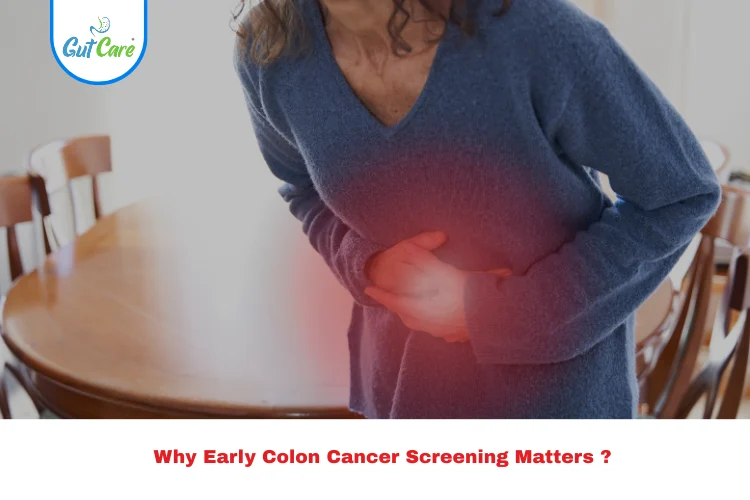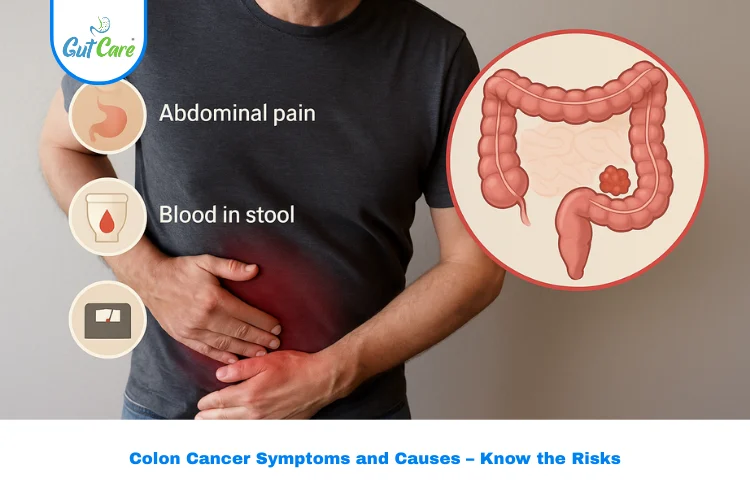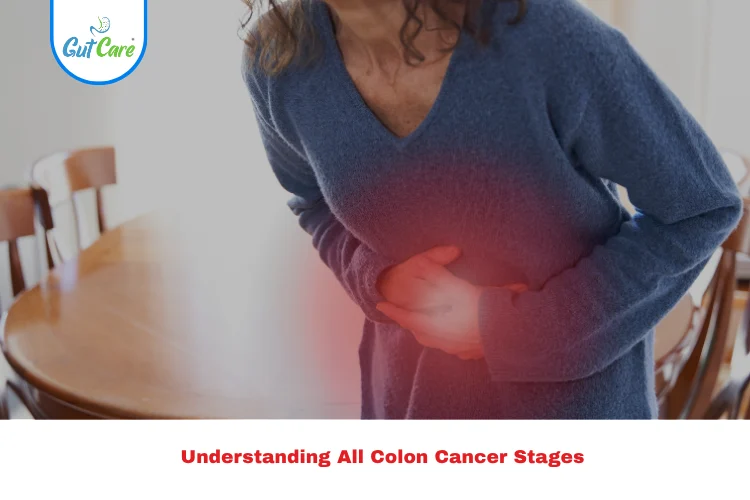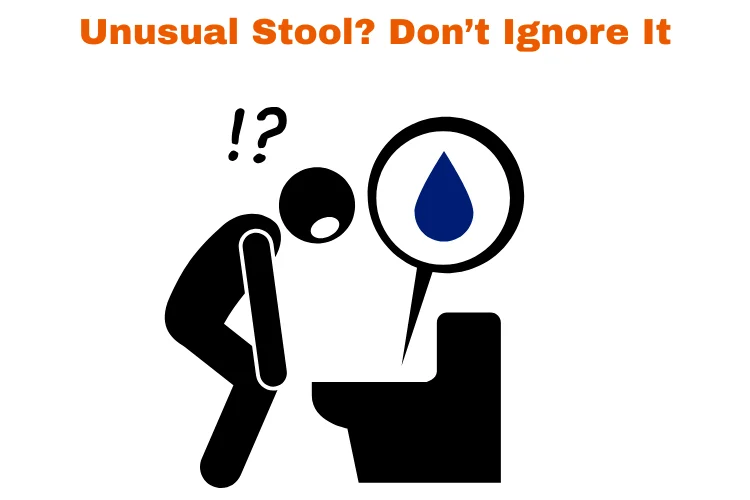Colon cancer screening is the effective method for diagnosing colorectal cancer at an early stage. At Gutcare Clinics, a premier gastroenterology clinic & center in Bangalore, we know how important diagnosing cancer at an early stage is. The truth is, there is always a screening method available that is safe, reliable, comfortable, and accessible! If you’ve been diagnosed with symptoms or turning 45, colon cancer screening should be on your long-term radar of health.
Why Colon Cancer Screening Matters
Colon cancer, or colorectal cancer, is one of the most common cancers in the world. It usually begins with small noncancerous polyps in the colon or rectum that can eventually turn cancerous. By screening for colorectal cancer, polyps can be discovered and removed before they become dangerous.
Key Benefits of Colon Cancer Screening:
- Early detection when treatment is most effective
- Prevention by identifying and removing polyps
- Peace of mind for patients with a family history
- Reduced mortality rates through early intervention
Who Should Get Screened?
As stated by all serious health organizations along with Dr. Yuvraj Singh Gehlot, a prominent gastroenterologist at Gutcare Clinics, people should begin screening for colon cancer at a younger age if they have:
1. A family history of colorectal cancer
2. A personal history of polyps or inflammatory bowel disease
3. Genetic conditions
If you have symptoms like blood in your stool, weight loss for no reason, or persistent abdominal pain, you should seek advice from a specialist as soon as possible.
Common Screening Methods for Colon Cancer
1. Colonoscopy
Colonoscopy is the most comprehensive screening for colorectal cancer. A thin tube with a camera is used to examine the colon and rectum.
Benefits:
- Detects and removes polyps in one procedure
- Offers clear visuals of the entire colon
- Performed under sedation for comfort
How it’s done:
After bowel preparation, the procedure typically lasts 30–60 minutes. You’ll need to take a day off for recovery.
2. Fecal Immunochemical Test (FIT)
A non-invasive at-home stool test that detects hidden blood, a possible sign of cancer.
Benefits:
- Easy and convenient
- No dietary restrictions
- Affordable
How to use:
Collect a stool sample at home and send it to a lab. If positive, a follow-up colonoscopy is recommended.
3. CT Colonography (Virtual Colonoscopy)
Uses CT scans to produce images of the colon.
Benefits:
- Non-invasive
- Quick results
- Suitable for those unable to undergo standard colonoscopy
Note: If polyps are found, a traditional colonoscopy will be needed.
4. Stool DNA Test (e.g., Cologuard)
Combines FIT with DNA markers associated with colon cancer.
Benefits:
- High sensitivity to cancer and polyps
- Home-based testing
- Recommended every 3 years
Limitations: False positives may occur; abnormal results require a follow-up colonoscopy.
Role of Experts Like Dr. Yuvraj Singh Gehlot
At Gutcare Clinics, Dr. Yuvraj Singh Gehlot specializes in digestive health and colon cancer prevention. His expertise ensures that each patient receives a personalized screening plan, whether you’re at average risk or have a more complex case.
His comprehensive consultations can help assess risk factors, recommend the best screening for colon cancer, and interpret test results with care and accuracy.
Gutcare Clinics: Your Partner in Digestive Health
Gutcare Clinics, based in Bangalore, is equipped with advanced diagnostic technology, experienced professionals, and good hearted care. We also seek to advocate for colon cancer screening and to ensure that early detection is available to everyone.
The Importance of Consulting a Medical Professional
Self-diagnosing or ignoring the need for screening can cause extreme problems. Symptoms such as:
- Persistent abdominal pain
- Rectal / blood in stool
- Changes in bowel habits
…should never be dismissed. A doctor will be able to tell you, a gastroenterologist should be consulted if repetitive or severe.
Summary
Colon cancer screening is more than just a health check—it’s a potentially life-saving step. By understanding your risks, choosing the right screening method, and partnering with experts like Dr. Yuvraj Singh Gehlot at Gutcare Clinics, you can take control of your health and well-being.
Early detection saves lives. Don’t wait—schedule your screening for colon cancer today.
FAQs
1. What age should I start colorectal cancer screening?
Average-risk individuals should initiate screening at age 45. If you have a family history, please consult Dr. Yuvraj Singh Gehlot at Gutcare Clinics in Bangalore for recommendations.
2. What are the symptoms indicating I may need screening for colorectal cancer?
If you have symptoms such as blood in your stool, unexplained weight loss, or changes in your bowel patterns, you may need screening. Regardless of symptoms, colon cancer screening is very important for early prevention.
3. Is having a colonoscopy painful?
Colonoscopy is usually performed while you are sedated; therefore, most patients experience little or no discomfort. Colonoscopy has the highest accuracy for screening for colon cancer.
4. Can I screen for colon cancer at home?
Yes, at-home tests such as FIT tests and stool DNA tests are available. If they are positive, a follow-up colonoscopy at Gutcare Clinics is recommended.
5. Why is Gutcare Clinics the best hospital to get screened for colon cancer in Bangalore?
Gutcare Clinics offers state-of-the-art technology and the expert knowledge of Dr. Yuvraj Singh Gehlot, with a focus on improving the well-being of patients, Gutcare Clinics is one of the best hospitals in Bangalore for colon cancer screening.




